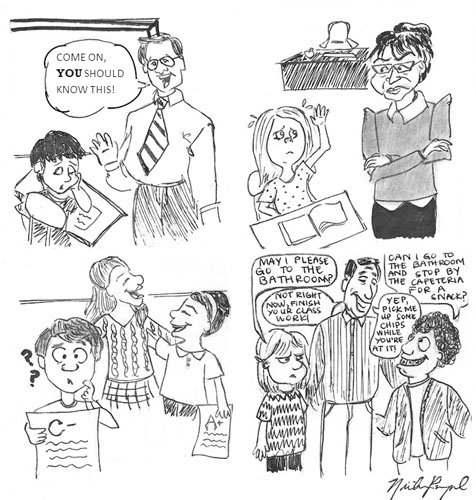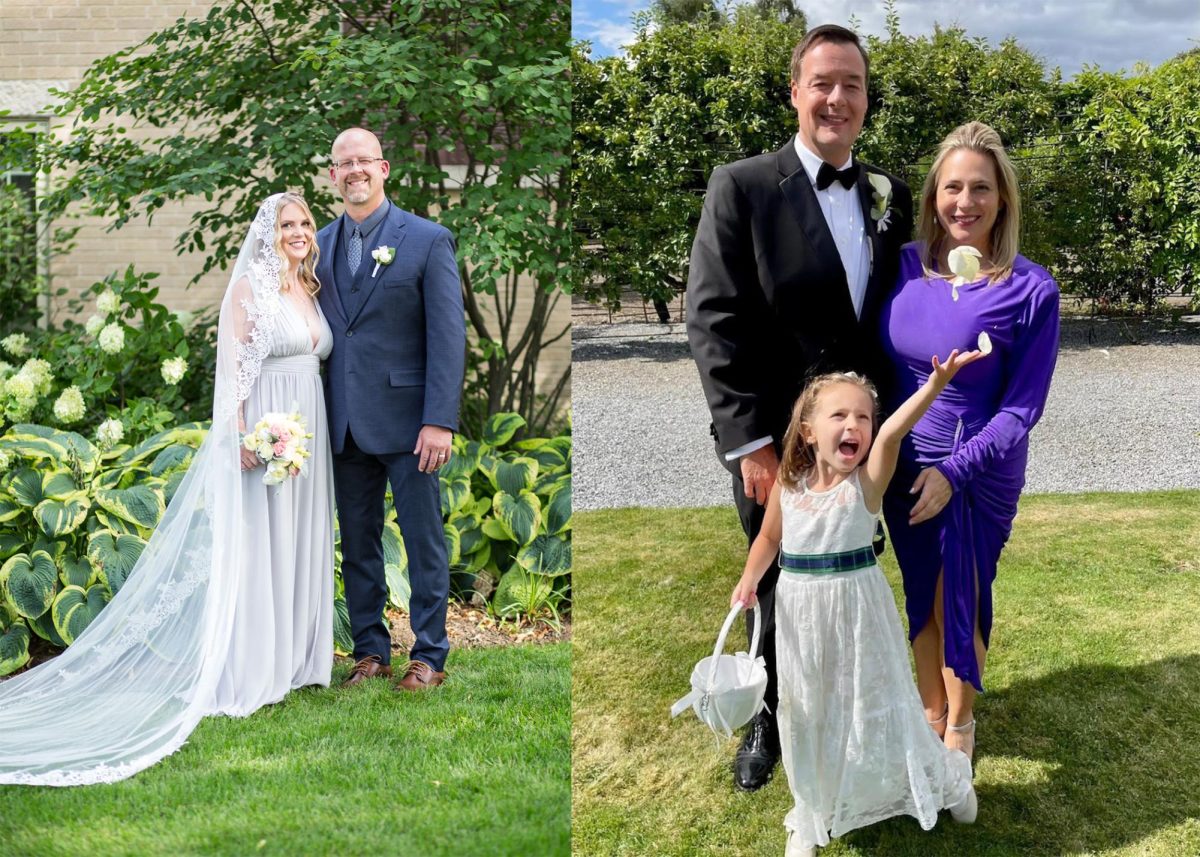Students spend nearly half of their waking hours at school with teachers. Because of this concentrated time spent together, some South students feel like they have negative relationships with their teachers due to unfair treatments.
Junior Raj Patel* feels that some of his teachers have treated him unfairly because of his Indian ethnicity. In particular, one of his teachers made several offensive jokes about his race.
“It’s very hard to get an answer that’s direct and informative if the teacher is treating you in such a way,” Patel said. “I would hold off my questions and ask a friend or the TLC instead.”
According to Patel, he was not the only student in his class who was offended. The teacher frequently insulted students with racist and sexist jokes. According to Patel, he has experienced slight racism from other teachers before, but not nearly to the same extent as this teacher.
“I don’t think it’s okay, but unfortunately, I don’t think there’s much that can be done,” Patel said.
Junior Elaina Jones* has also experienced unfairness from teachers. She encountered it the most with one of her teachers, who, according to Jones, treated the entire class unfairly and disrespectfully.
“Everyone in the class dreaded going there,” Jones said. “After class, we were honestly sad. Me and my friend would walk to our next period, and some days we would cry.”
On one occasion, Jones asked the teacher about a concept from earlier in the year, and the teacher scolded her for not knowing it. Instead of answering the question, the teacher told her to look in the textbook, according to Jones.
“I was genuinely confused,” Jones said. “It was a really hard class. He made it really difficult for me. I don’t know why he was so mean in class, maybe that was the way he thought he could teach us best, but it didn’t work.”
Jones and several of her classmates complained to a counselor about the teacher’s unfairness. However, it felt as if nothing had changed, Jones said. Jones believes that nobody confronted the teacher directly because they were afraid it would affect their grade.
“I was scared to confront him,” Jones said.
South teacher Elizabeth Price*, who was mentioned in an Oracle-conducted survey as a teacher who made students feel unfairly treated, believes that students sometimes falsely accuse teachers of being unfair when they do poorly in a class.
“Students don’t always succeed the first time, and that’s incredibly frustrating for people who have come from a culture of success,” Price said. “And so they blame the teacher. These students will grow out of these opinions at some point and start to take on responsibly for themselves.”
Junior Andrew Nash* had such a bad relationship with his teacher that he decided to drop a subject that he enjoyed. Nash said he had teachers who treated him unfairly in classes both his freshman and sophomore years.
He felt his teachers graded him harder than the rest of the students in his class because they disliked him, according to Nash.
“I kept improving, but as the year went on, my grades kept getting worse and worse,” Nash said. “I feel like it definitely had something to do with my relationship with them.”
According to Price, teachers work hard on rubrics in order to avoid situations such as what Nash experienced, specifically assignments that have potential for subjective grading.
“We take great pains to make it clear to students what we’re looking for in an assignment, and we’re hoping that if students have questions about something, that they’ll come in and go over it with us, so that everybody is clear on what the expectations are,” Price said.
Similar to Nash, senior Jonah Anderson* is reluctant to take a class that is important for her future career choice because of the teacher of the class. According to Anderson, the teacher gives certain students more freedom than others, which angers her.
“It makes me not want to take the class anymore, and that’s really upsetting because it’s something that I want to do as a career, so I actually have to take that class with the same teacher every year,” Anderson said.
According to South teacher James Carey*, another teacher mentioned in an Oracle-conducted survey as a teacher who made students feel unfairly treated, teachers sometimes make exceptions for students when they are aware that the students are having issues in their personal lives. Other students who are unaware of the situation may see this as the teacher favoring other students, Carey said.
Price said teachers at South have no intent of treating students unfairly.
“It’s unfortunate because that’s not why we [use] the practices that we do,” Price said. “Clearly, all of the teachers in this building care about students and we care about helping students to learn things, and sometimes learning is difficult.”
Carey agrees with Price in that teachers work hard to be as fair as possible. Carey said she thinks students feel that teachers are treating them unfairly due to different expectations.
“When the expectations of the students and the teachers don’t meet up, that’s where you get problems of being unfair,” Carey said. “The idea is that the school has certain rules and they are very clear about certain things. Students must see what is expected of them.”
According to Carey, students need to see that teachers are looking to help them.
“Young people understand that authoritative figures almost always want to give them the benefit of the doubt,” Carey said. “But sometimes young people don’t give them the chance for this.”
*Names have been changed









